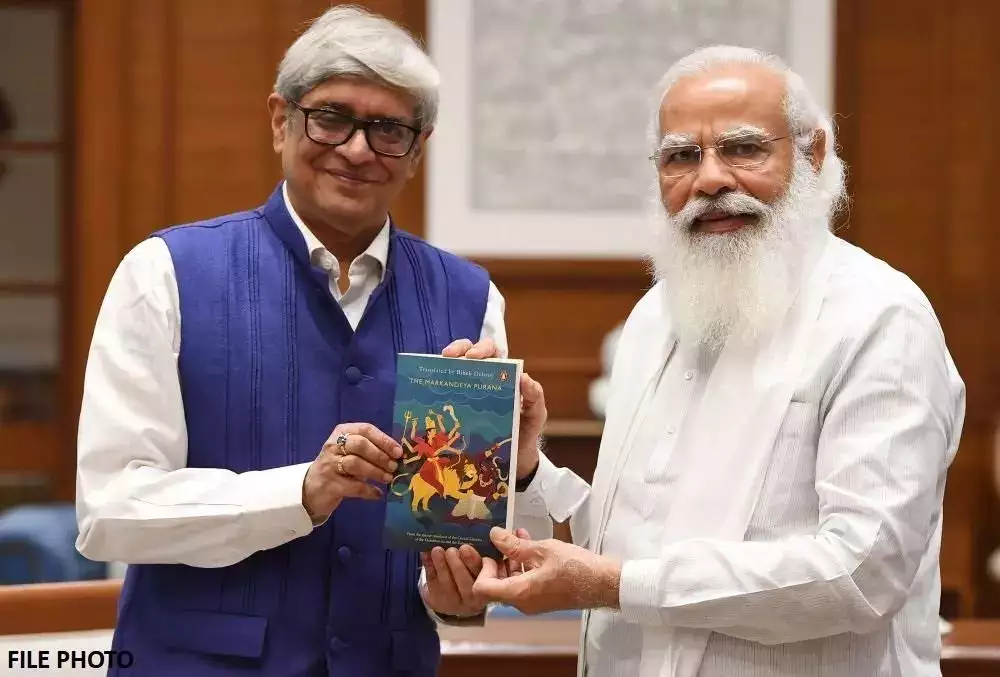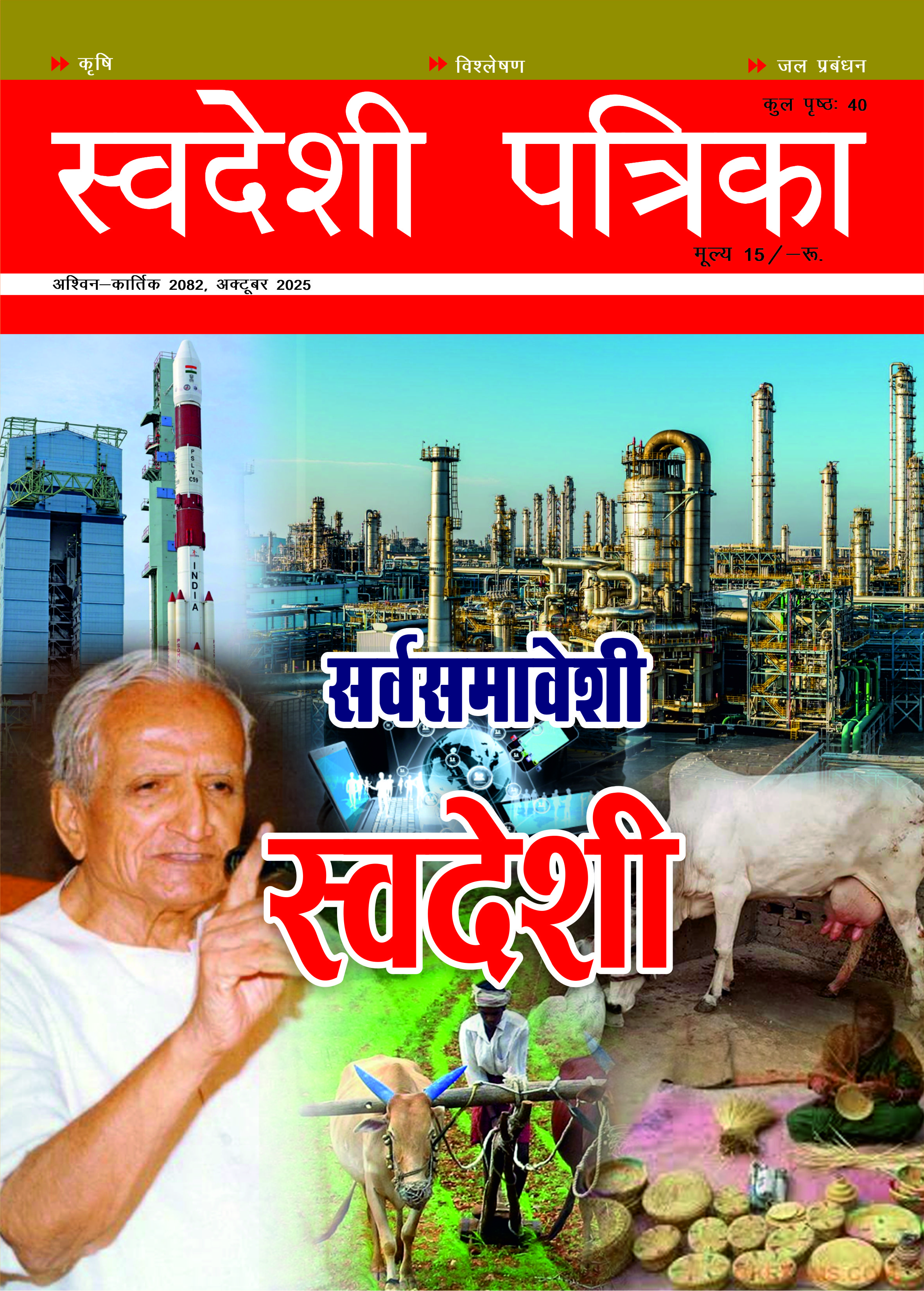
Dr. Bibek Debroy, from the lens of the Third way
The need for Swavalambi Bharat, the want for Atmanirbhar Bharat, and the wish for VishwaGurur Bharat are possible because of the genuine efforts of people like Dr. Bibek Debroy, who could understand and differentiate it with autarky. — Alok Singh
Dr. Bibek Debroy was a polymath. His article, published four days before he breathed his last, reflects his inner soul. It reflects that he was a self-satisfied human being. He titled his last article, “There is a world outside that exists. What if I am not there? What indeed?”. This article captures many things about Bibekda -as youngsters popularly refer to him. His thirst for reading new books, carefully analyzing television debates, his contribution towards trade works of 1980, law reforms of 1990, State work of 2000, railway reform of 2015, resignation from the Rajiv Gandhi Foundation in 2005, and he has left for others to consolidate his contribution since 2015.
In this article, he also wrote his applied academics will and expected to complete his unfinished projects so that only his core teammates could decode what he meant by ‘Puranan Project.’ This article also reflects the nostalgia through which a family passes: the children staying abroad today and parents are septuagenarians, parents of today’s septuagenarians staying in a distant city within the country when these septuagenarians were then young. He meant to remind the old Bollywood song ‘Kahee Der na Ho Jai” in various contexts. He related the real world using keywords like Geeta, Janaka, sub-consciousness mind, and hallucination. His last sentence in that article is that he thinks for the better.
He mentioned in the article the landscape of the hospital buildings, the patients’ rooms, and the way patients perceive them. If he had had the opportunity to add a few lines after his demise, he might have written about the experience of sharing the last medicine. The doctors usually declare that the medicines are not working and then wait till the last moment to inject the last medicine, as the last medicine is risky, and wait for a miracle to happen or the ultimate cardiac arrest. He had mentioned the standard operating procedure of the hospital up to four days before he breathed his last. This article also reflects the urge of a patient to go home even at the cost of risking their life when the mind starts accepting that the medical treatment is running out of alternatives. He was also discharged from the hospital and later breathed his last at the hospital. He knew that, so he penned it to the maximum in his last article.
Many of Dr. Bibek Debroy’s articles synchronize very well with the “Third Way” idea scripted by DattopantThengdi Ji, the founder of Swadeshi Jagran Manch. His articles always tried to link contemporary problems with the solutions that existed in our traditional knowledge system. Such contributions strengthen Bibekda’s polymathic abilities. He can discuss economics, Vedic scriptures, public policy, and sociology, among many other dimensions of knowledge.
His choice of words, his creation of sentences, and his ability to link experience with the future forecast in the present time demonstrate his purity of heart and originality of work and his personality as a fun-loving individual who does the severe work of national interests. His resignation from the Rajiv Gandhi Foundation is a testimony that he lived and worked on his terms and was always willing to bear the price for his audacious behavior.
All his articles are an asset for many of his followers who think the way he used to think. Reading Bibekda excites the thought process, and it encourages readers to accept the power of the relevance of Bhartiya philosophy and Bhartiya knowledge system to the contemporary and almost blind world where the shelf life of trade policy and, to a great extent, public policy is decreasing consistently.
Dr. Bibek Debroy’s message is that the world will continue to face challenges, good and evil will have to fight consistently, and the philosophy of actual development and true wealth lies in the Bhartiya knowledge system. On numerous occasions, he has leveraged his understanding of Vedas and Puranas to explain the tough-to-understand situations of life, whether it be economics or sociology.
It will not be easy to find an individual who understands economics, Sanskrit, sociology, trade, family values, and traditional knowledge systems, is willing to pay the price for original thoughts, and is heard by the country’s decision-makers.
Bibek Debroy Ji has the commitment of a policy maker whose policy recommendations cared for long-term sustainable growth whenever the occasion demanded a trade-off with short-term popularity gains. Bibekda’s work matches the ‘Third Way’ idea presented by DattopnatThengdi Ji. The ‘Third Way’ focuses on long-term sustainability and emerged as an alternative path to Communism, Capitalism, Socialism, and Marxism.
Bibek Debroy Ji himself was a travel-loving individual and a well-read person interested in many things beyond his professional area of education. He spent time for his likes of spirituality, researching traditional knowledge and presenting it to the broader world using articles and columns in newspapers and magazines as well as volumes of well-documented heritage books through translation into the English language. These are his contributions towards sharing knowledge. It will not be an exaggeration if his translation or re-presentation of Sanskrit text in English creates new knowledge for those who do not understand or care about the Sanskrit language.
In the last few decades, Bibekda has knowingly or unknowingly acknowledged DattopnatThengdi Ji’s thoughts on the meaning of sustainable public policy. His work on Sanskrit texts and correlating them with public policy wherever possible reminds many of Dr. Madhukar Govindrao Bokare, who authored the book Hindu Economics. Bibekda’s work is in the same direction.
Bibekda has advocated for different varieties of self-reliance, such as self-reliance in products that we consume a lot, self-reliance in products that we source from a single foreign destination, and self-reliance in products that are constrained by supply shocks.
The need for Swavalambi Bharat, the want for Atmanirbhar Bharat, and the wish for VishwaGurur Bharat are possible because of the genuine efforts of people like Dr. Bibek Debroy, who could understand and differentiate it with autarky.
(Alok Singh has a doctorate in management from the Indian Institute of Management Indore and is a promoter of Transition Research Consultancy for Policy and Management).


